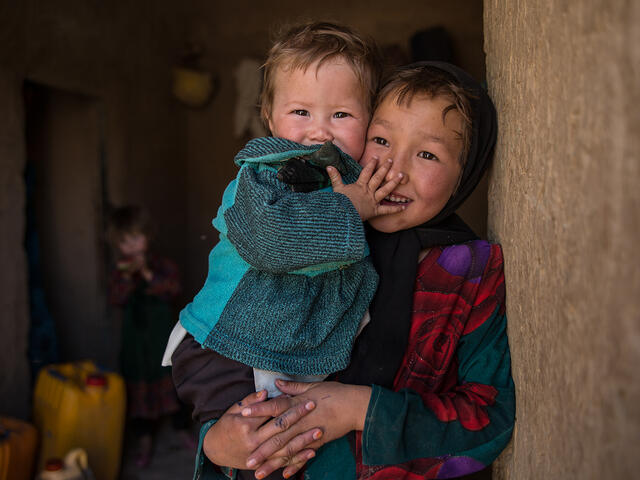
What is Climate Change?
Climate change refers to the warming of the Earth by more than two degrees Fahrenheit since the late 1800s. There is overwhelming evidence that this warming is caused by human activity, particularly the increased burning of fossil fuels such as coal, gas and oil, which releases greenhouse gases into the atmosphere.
How does climate change affect people?
International Rescue Committee teams and other humanitarian workers around the world are seeing the consequences of climate change firsthand. The last ten years were the hottest on record which has been shown to increase the frequency and severity of natural shocks. The climate crisis is exacerbating food security and undermining livelihoods, contributing to greater displacement and – at times – conflict over resources. The World Bank has predicted that the worsening impacts of climate change could force over 140 million people to be displaced within their home countries by 2050.

We all have a part to play when it comes to caring for our world and the people who call Earth home.
Use your voice to fight climate change
Will you call on our global leaders to commit to taking action and tackle the climate emergency? People living in the poorest countries, who will suffer disproportionately, must be kept in mind. Many people in these countries are uprooted from their homes and farmlands, and vast regions face famine because of climate change. The climate crisis can also mean that the risk of armed conflict over resources increases.

World leaders must do more and work faster to reach their countries’ climate goals, reduce carbon emissions, and contribute toward restoring nature in line with the Paris Agreement goals.
Get informed on climate change
Knowledge is power. While the problem can seem daunting, education is key to understanding the climate crisis and what you can do to take action. There are many resources available for free such as podcasts and books on the topic. Or you can visit our climate change page to find out more.
The forest fires sweeping through #Greece are a frightening example of the extreme heat impacting much of the country.
— International Rescue Committee - UK (@RESCUE_UK) August 2, 2021
Temperatures across the area are reaching well beyond 40°C. (1/3)https://t.co/2UhCD8oeoA
Find ways to donate to organisations working to end climate change
You can support organisations working to tackle climate change. Today, the IRC is one of the world’s largest humanitarian organisations. We help people affected by humanitarian crises to survive, recover and rebuild their lives. The IRC helps communities respond to the changing climate by mapping climate hazards and developing early warning systems, supporting local efforts to manage natural resources and conserve water, and training people in sustainable livelihoods. Throughout all this work, we put the needs of women and girls at the centre of our programmes.
We also partner with other organisations to advocate for policy changes to drastically reduce greenhouse gas emissions and lessen the effects of climate change on people with the least power and fewest resources.
In addition, the ambitious IRC climate action plan has set us on a course to change how we work in order to reduce our own carbon footprint.
Rapidly spreading wildfires in #Akkar, north #Lebanon are forcing thousands of people to flee their homes for safety.
— International Rescue Committee - UK (@RESCUE_UK) August 8, 2021
The IRC is supporting local communities affected by the fires and distributing essential food items. pic.twitter.com/O0niwymrFS
Get involved with the Great Big Green Week
In September, people from all around the UK will join together to celebrate action on climate change. You can invite your community to get involved and get started in your local area. Find out more, here. https://greatbiggreenweek.com/get-involved/